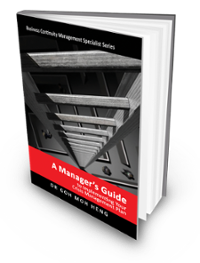Identity Crisis Management Training
 The training of the crisis management (CM) and response organisation is one of the critical success factors that must be addressed if an adequate response is to be achieved.
The training of the crisis management (CM) and response organisation is one of the critical success factors that must be addressed if an adequate response is to be achieved.
The development of the crisis management program, the involvement of all levels of management, and the establishment of preparedness are only part of the overall process.
To ensure an adequate response, a trained organisation is required.
Training Program Preparedness
A "system" approach to preparing effective training programs should include task analysis and lesson development.
Clarity on additional training that may be necessary to ensure an organisation's CM team has the skilled members to respond effectively to a crisis.
Typically, the need for training in crisis management, peer support, first aid training, evacuation planning, and many other areas is to be identified.
Key Competency of CM Leader
In a typical scenario, a person would establish and manage the implementation of crisis management and intervention strategies, which can reduce the risk to the organization's personnel, other responders, and commercial, reputational, and contractual assets during incidents.
Key aspects of the competence include:
- Minimising escalation of the crisis;
- Establishing contingency plans for dealing with the crisis;
- Sourcing and managing of resources required;
- Managing communication within and outside the organization; and
- Optimizing the organizational response to minimise the impact of the crisis, the individual may:
- Ensuring that organisational response is appropriate
- Using communication skills to deal with stakeholders' concerns
The person or CM team leader would control personnel during an incident. They would also always liaise and cooperate with other management members, other teams, and possibly external organisations.
Provide Mandatory Training for the CM Team
There are very few training centres that provide formal crisis management training. Facilities exist to train crisis communication, but not purely for crisis management.
It is vital to provide simulations to help a CM team recognize a crisis and take the appropriate actions. These actions include developing crisis options and strategies, assessing time management under duress, and considering the variations in the decision-making process.
Task Analysis
First, when designing an integrated training program, the skills, knowledge, and procedures required for satisfactory performance of each task should be determined.
Lesson Development
Learning objectives are defined based on the skills, knowledge, and procedures developed during task analysis. Instructional plans are then prepared to support the learning objectives.
Instruction
Lessons are systematically presented using appropriate instructional methods. Instruction may include lecture, self-paced or group-mediated instruction, simulation, and team training.
Periodic Training Evaluation
Performance standards and evaluation criteria are developed from the learning objectives. Each trainee's performance is evaluated during the course and field performance testing.
The best way to ensure that everyone understands his or her role in the plan is to have training on managing a crisis. The training will help address legal issues before they occur, develop investigation procedures; identify systems and equipment needed during a crisis and develop good media relations.
In addition to the formal training program, a proficiency demonstration program is also needed. This can be accomplished by establishing a program that supplements the training with drills and exercises. The drill program can vary in degree of complexity.
Information Management
Establishing and maintaining an ongoing dynamic CM Programme is essential. The crisis management process does not end just because you finish the CM plan, comply, have involved management, and have trained the staff.
A record of all initiatives should be retained to facilitate planning requirements. These records document the accomplishments, requirements, commitments, and reports relating to various program requirements.
Identifying commitments in compliance, emergency preparedness, and training is vital. Establishing a defined information management system structure will ensure that documentation is available when needed.
Executive management must be kept well informed. Information is a corporate asset, and it is expensive. It must be shared and managed effectively. Information management is also critical during a crisis.
Active systems that provide information on materials, personnel, capabilities, and processes are essential. It is paramount to have a system (and adequate backup systems) that identifies, catalogues, sets priorities and tracks issues and commitments related to CM and response activities.
Staffing Planning
- Function
- Qualification/ Skillsets
- Number of Staff Needed
- Potential Staff Member (Contact Information)
- Training Needed?
- Training Completed?
|
Function |
Qualifications/ Skill Sets |
|
Leadership |
|
|
Clearance |
|
|
Content |
|
|
Communications |
|
|
Communication Monitoring and Research |
|
|
Government Communications |
|
|
Hotline/ Phone Bank |
|
|
Media |
|
|
Web/Online Communications |
|
|
Spokespersons |
|
Summing Up ...
One critical success factor is determining the type, frequency, and quality of continuing education and training the crisis response team receives. This includes reinforcement exercises, crisis simulation exercises, education forums, and pre-event response planning workshops.
Goh, M. H. (2016). A Manager’s Guide to Implement Your Crisis Management Plan. Business Continuity Management Specialist Series (1st ed., p. 192). Singapore: GMH Pte Ltd.
Extracted from CM Training and Awareness
More Information About Crisis Management Blended/ Hybrid Learning Courses
To learn more about the course and schedule, click the buttons below for the CM-300 Crisis Management Implementer [CM-3] and the CM-5000 Crisis Management Expert Implementer [CM-5].








![[BL-CM] [5] Register](https://no-cache.hubspot.com/cta/default/3893111/82024308-16f4-4491-98be-818a882c6286.png)

![Email to Sales Team [BCM Institute]](https://no-cache.hubspot.com/cta/default/3893111/3c53daeb-2836-4843-b0e0-645baee2ab9e.png)





